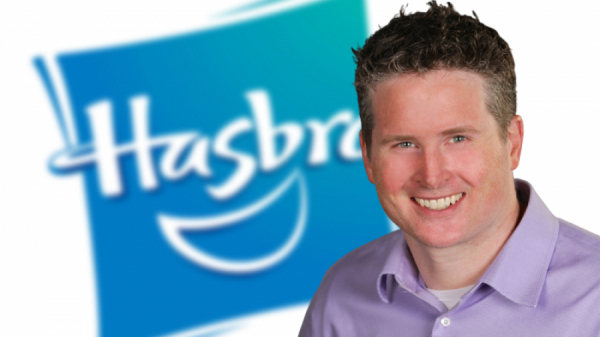Hasbro, Inc., parent company of Magic: The Gathering maker Wizards of the Coast, issued the a letter to shareholders on Tuesday.
Hasbro, Inc., parent company of Magic: The Gathering maker Wizards of the Coast, issued the a letter to shareholders on Tuesday, which includes a Q&A with new CEO Chris Cocks, in connection with the Company’s 2022 annual meeting of shareholders to be held on June 8, 2022.
The letter reads:
Dear Hasbro Shareholders,
The following is a brief interview with our new CEO, Chris Cocks, that gives insight into how he intends to lead Hasbro in partnership with the Board to drive value creation and profitable growth for the benefit of all our shareholders. Hasbro’s Board brings the right balance of fresh perspectives and institutional knowledge to support Chris as he builds on our industry-leading expertise to drive change and long-term value.
You were at Wizards of the Coast for five years before becoming CEO of Hasbro. How did the Board support you in growing the business at Wizards and how will it support you as CEO of Hasbro?
The Hasbro Board was a great partner for me and the team at Wizards of the Coast. When I joined Wizards in 2016, it was a small but profitable business for Hasbro. It had been on a previous growth run but had been plateauing. The big question at the time was, what would drive the next leg of growth?
Ted and Rich with our full Board, including our late CEO Brian, challenged me to think bigger. They were supportive when we needed to significantly turn over our technical leadership and engineering ranks and greatly ramp up our games industry recruiting. As we made progress with what ultimately became Magic: The Gathering Arena, our digital version of Magic: The Gathering, they saw potential for our IP in more digital expressions and pushed us to “Go Big” in our aspirations. Ultimately, the “Go Big” growth plan expanded beyond digital trading cards to encompass our other great brands, particularly Dungeons and Dragons. They supported these plans through significant financial investments in the Wizards of the Coast business. They also encouraged a data- and consumer-focused approach to ensure these significant capital investments had the greatest potential return possible, and to explore partnerships with platforms and publishers to defray our risk.
Lisa—who, in her position as chair of the Compensation Committee, leads the development and implementation of all major compensation programs—has been a strong partner for our growth in an industry with a highly competitive talent pool. She comes from a creative industry and understands dynamic compensation and talent markets. Leveraging this expertise, Lisa oversaw the reinvention of our compensation model through a review of peer benchmarks and an expansion of equity compensation. As a result, we have been able to grow rapidly and have landed talented industry veterans who have played a critical role in accelerating Wizards’ growth.
You became CEO of Hasbro less than 100 days ago. What have your priorities been since assuming the CEO role on February 25?
The core functions of the CEO job are to review, set and execute on our strategy through thoughtful deployment of our capital and leadership of our talent, working in partnership with our Board to drive total shareholder return. In these first 100 days, I’ve spent much of my time learning about our teams, investments and execution capabilities, and how Hasbro can best serve the interests of all our shareholders, as part of my comprehensive review of the Company’s go-forward strategy and our businesses. Important themes that have emerged include:
- An emphasis on Focus and Scale as we think about our brand and markets;
- Our growth thesis around Games, Multigenerational Play & Entertainment and Direct To Consumer;
- Our continuing focus on our successful Brand Blueprint Strategy; and
- A continued focus on disciplined capital allocation.
Can you explain the Brand Blueprint strategy and why it is important for Hasbro?
The Brand Blueprint is how we engage our consumers across our portfolio of globally beloved brands. It’s about leveraging our IP across multiple play and entertainment channels to maximize both our connection with families and fans and returns for shareholders. This strategy has helped us deliver an over 289% total shareholder return since its inception in 2008.
We start with fundamental insights and use this data to profitably engage our consumers across gaming, including digital and tabletop games, toys, animation, live action entertainment and user-generated content with partnership capabilities and licenses. Every brand in our portfolio is uniquely relevant to a specific brand’s audience. Most brands use common executional capabilities across Games, Consumer Products and Entertainment, which allow us to monetize across touch points, assure creative consistency and orchestrate execution to maximum commercial effect.
The results speak for themselves. Compared to 2006, prior to the launch of Hasbro’s Brand Blueprint, Magic: The Gathering has grown revenue by 8.4 times, leveraging a combination of location-based entertainment and play events as well as digital games. Nerf has grown by 5.6 times due to new category expansion, influencer marketing and user generated content. Transformers has grown 3.0 times from a combination of blockbuster theatrical entertainment, toy category growth, licensed partnerships and a drumbeat of animation. Most recently, My Little Pony benefited from the release of our top-performing animated feature on Netflix, with 100% point of sale growth in the fourth quarter 2021. These are just a few examples in a long list.
How do you and the Board think about where to allocate capital and invest to drive growth and maximize shareholder returns?
Our approach to capital allocation is focused on investing in the business to drive profitable growth, returning excess cash to shareholders via share repurchases and our dividend (which has grown at a 7% CAGR over the last 5 years), and de-levering our balance sheet to maintain our investment grade rating and achieve our Debt to EBITDA targets. We are always focused on identifying opportunities at the intersection of high growth, high profit and our own executional capabilities. For existing categories, we use extensive competitive benchmarking, coupled with proprietary channel and consumer insights. For new or emerging categories, we analyze the consumer and relevance of our brands, how our existing capabilities can tap into the opportunity and what we think the return on investment will be. We then make a build, buy or partnership decision if we think the category merits investment.
This is why specific industry experience is so important to our Board. In order to provide proactive leadership and partnership, our Board needs to have a deep understanding of not just financial modelling, but the risk and return inputs unique to our sectors: talent, business model, partnership and risk deferment opportunities, and complex rights and library management. Our Board includes four former CFOs (including the former Head of Film Financing for Disney and the former CFO of Electronic Arts) and five members with financial industry experience, all of whom have deep knowledge of Games, Entertainment and Consumer Products. Our Board’s strong capital allocation experience coupled with deep, relevant industry backgrounds helps us evaluate and push ourselves on deals like our recent acquisition of D&D Beyond. That acquisition gives us a strong set of new digital direct capabilities, a base of nearly 10 million highly engaged users for one of our priority brands, a favorable 8 times trailing twelve-month EBITDA multiple and a business that has been growing at a 50% Compound Annual Growth Rate (CAGR) over the last 3 years.
That same experience and capital allocation discipline also led to the Board’s decision to divest of the eOne music business last year. The Board did not believe the music business was going to be a core driver of the Brand Blueprint strategy. That decision allowed the Board to invest in other areas of the business while also paying down more than $1 billion in long-term debt and maintaining the dividend for shareholders.
Why is it better for Hasbro to own a studio like eOne? Couldn’t Hasbro make movies and films through partnerships with other studios?
Hasbro has a long history of theatrical partnerships with strong successes, most notably, Transformers. However, partnership deals have significant trade-offs, including a significant reduction in creative control, a reduced ability to participate in upstream economics, often long and complicated transfers of rights, little influence on release timing and a generally low production throughput. In the original Transformers, the robots almost didn’t talk! Can you imagine Optimus Prime not saying “Autobots, roll out!”? If a movie release date slips because a studio has a full slate, that can cost us in excess of $100 million of deferred revenue and significant inventory carrying costs. In contrast, owning in-house entertainment capabilities can provide huge benefits. For example, a Dungeons and Dragons film was in development for over seven years as part of a partnership model prior to our acquisition of eOne, a common occurrence as studios take a portfolio approach to optioning IP. Owning eOne and participating directly with our own creative capabilities allows us significantly more influence and allows us to more directly control decisions and timing that can affect other aspects of our business.
eOne has a track record of savvy risk-management, which allows us to maximize creative and dating influence while retaining our rights and minimizing financial downside. Consider Dungeons & Dragons, a year after integrating eOne, we had greenlit a movie with Paramount, our co-production partner, at a blockbuster budget with amazing talent in front of and behind the camera. We are on track to launch that film in March 2023 alongside a wave of games, consumer products, toys, licensing partnerships and digital experiences. That coordinated launch allows us to benefit from a successful film release, drive a significant opportunity in merchandise revenue and minimize our financing risks while retaining rights to pursue a universe of entertainment projects across partners.
Hasbro had some headwinds during the pandemic. Can you explain some of the challenges and what Hasbro did to address them?
COVID-19 was a challenging time for the world, and Hasbro was no exception. Hollywood production was paused for a significant period of time, the global supply chain became stressed and inflation increased significantly. Our diversified business model proved to be a strength. We were able to deliver strong operating cash flows, maintain and ultimately increase our dividend and grow our business. We also significantly increased EBITDA and net earnings in 2021. While we aren’t satisfied with our Total Shareholder Returns (TSR) since the start of the pandemic, we are overall trending ahead of our entertainment segment peers significantly and are at or ahead of our games industry benchmarks. Our Board’s continued oversight and engagement is helping us prioritize the work ahead.
As Hollywood production has ramped back up, our Film & TV segment is now in growth mode. Our gaming business also continues to be a bright spot. Hasbro is fortunate to have a portfolio of games that generated $2.1 billion in revenue last year, growing 19% year-over-year and generating in excess of 30% operating profit. Our strong, diversified business model has allowed us to continue to invest in new product innovation with a portfolio of exciting new toys across Nerf, Play-Dog, Peppa Pig, and our new line of sports memorabilia figurines, Starting Line-Up. These are just a few of the opportunities we are positioned to drive in Hasbro’s next chapter of growth.
The letter concluded with instructions for Hasbro shareholders on how to vote, stressing that the company wants its shareholders to vote for all of the nominees put forward by the Hasbro Board and not sign and return any voting cards issued previously by minority shareholder Alta Fox as the company will only be counting the latest dated proxy card at Hasbro’s 2022 annual meeting.
For information about the 2022 Annual Meeting, please visit: www.HasbroGamePlan.com.









